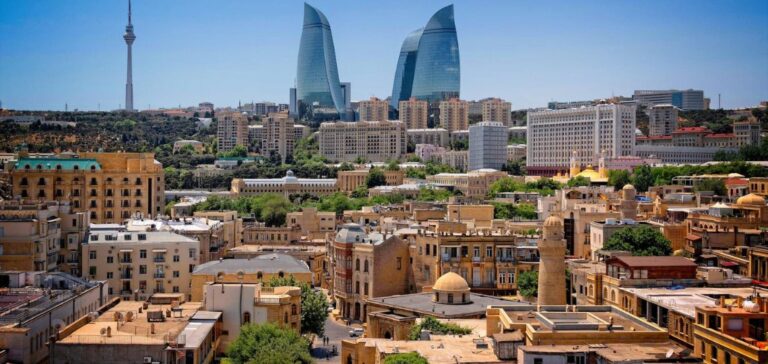Masdar has announced its intention to strengthen its commitment to the development of renewable energy in Azerbaijan with the opening of a new office in the capital city of Baku.
Inauguration of the new office
The opening of Masdar’s office in Baku was attended by the UAE ambassador to Azerbaijan, David Abdullayev, director of the Azerbaijan Renewable Energy Agency, and a delegation from Masdar led by its director general, Mohamed Jameel Al Ramahi.
Commitment to decarbonization
Masdar will work closely with the government and other stakeholders in Azerbaijan to accelerate the growth of the renewable energy sector. The country continues to take bold steps to meet its clean energy and low-carbon transition goals.
Dr. Sultan Ahmed Al Jaber, UAE Minister of Industry and Advanced Technology, COP28 President-Elect and Chairman of Masdar, said that both the UAE and Azerbaijan recognize the importance of investment in renewable energy to foster economic diversification, stability and growth.
Mohammed Murad Al Blooshi, UAE ambassador to Azerbaijan, said the opening of the new Masdar office in Azerbaijan is a testament to the two countries’ shared ambition for renewable energy and sustainability. Both nations are committed to working together to create a sustainable future.
Azerbaijan’s renewable energy ambitions
Azerbaijan has announced its intention to increase its installed electricity capacity from renewable sources by 30% by 2030. This strategy aims to diversify its economy and reduce its greenhouse gas emissions. The government of Azerbaijan considers the development of renewable energy sources as a priority for the development of the country and wants to make it a major producer and exporter of green energy.
At Abu Dhabi Sustainability Week 2023, the President of the Republic of Azerbaijan, Heydar Aliyev, gave a fiery speech highlighting his country’s clean energy goals and emphasized the role of his partnership with Masdar in achieving them. During ADSW, Masdar signed joint development agreements for offshore wind, solar, and integrated wind and green hydrogen projects with a total capacity of 4 GW. This is part of a broader agreement with the Azerbaijani Ministry of Energy to develop a renewable energy program on a bilateral basis with a total capacity of 10 GW through different technologies. This is one of the largest signatures of its kind in the history of Azerbaijan.






















